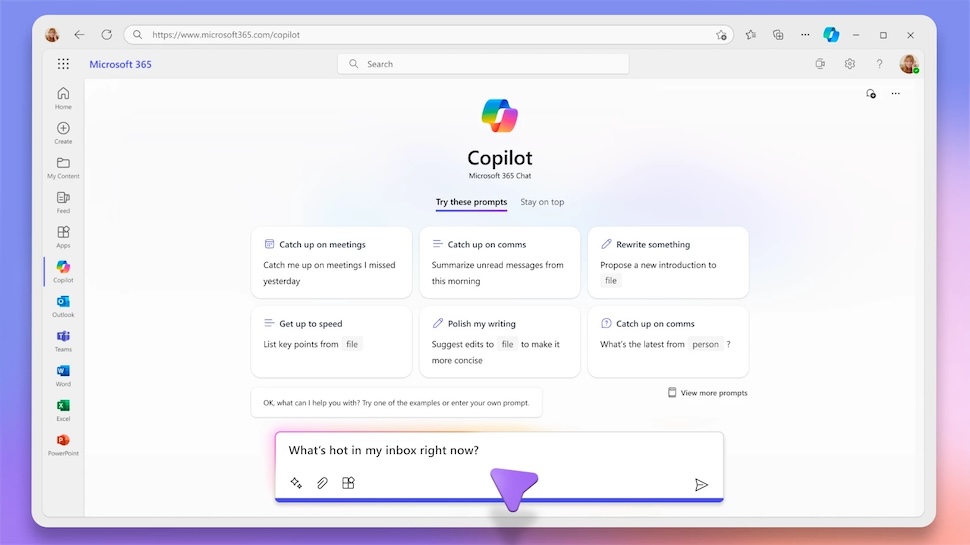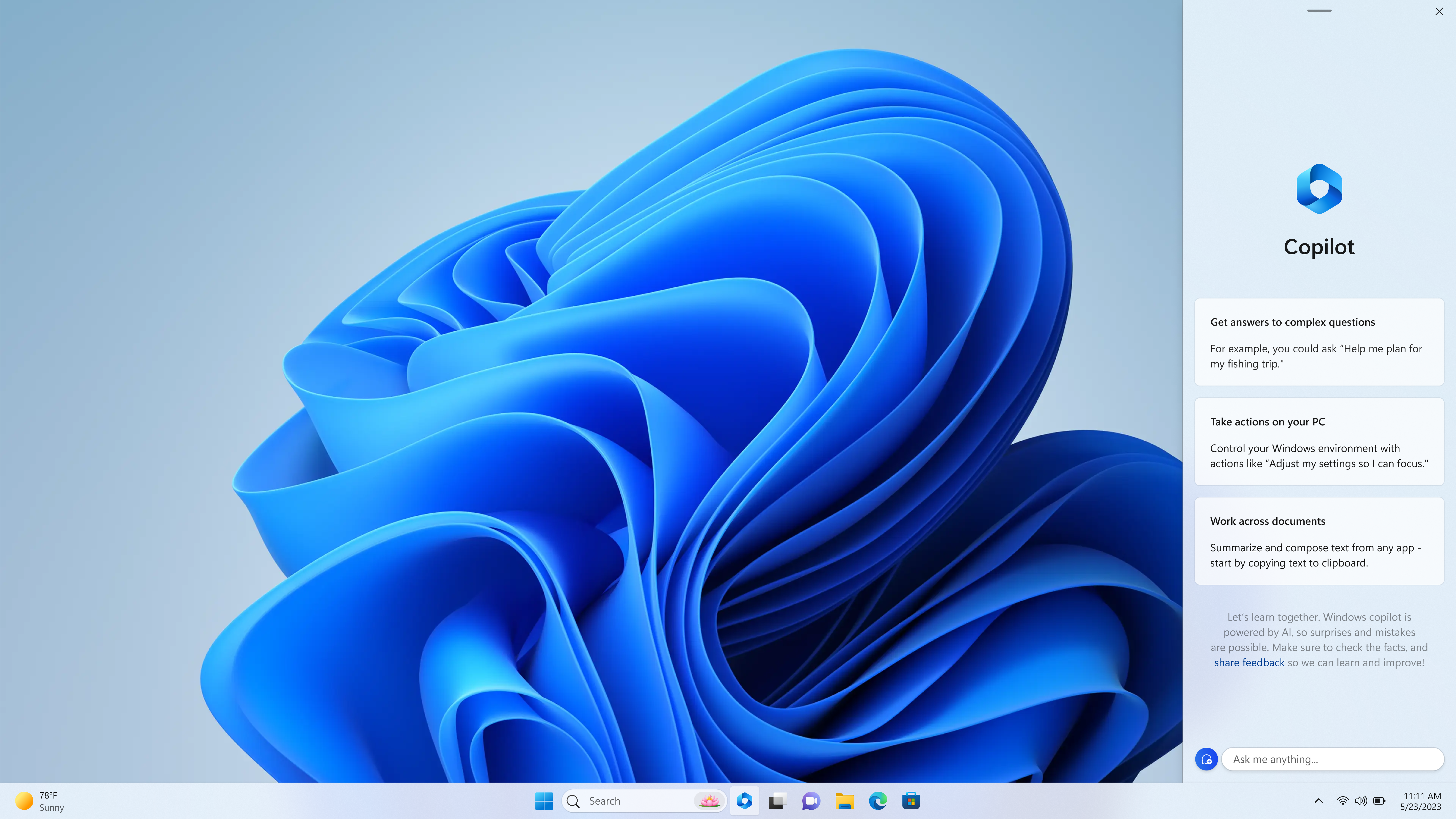Microsoft's AI Copilot could transform Windows 11 - but not everyone can get it
Copilot: not everyone’s AI companion yet

Microsoft wants its new AI-powered Windows Copilot to become your new universal assistant, but there’s one big problem: at the moment, Copilot is only available in the United States (and North America), the UK, and some Asian and South American countries.
Noticeably missing from that list is Europe, and as Microsoft told Windows Latest, this is because of the European Union's extensive privacy protection regulations. The tech giant has also confirmed that it’s working on a version of Copilot that’s compliant with EU laws and intends to “add additional markets over time.”
Copilot is the latest big project in Microsoft’s AI vision, joining Bing Chat, which integrates the popular ChatGPT, and its other large language models (LLMs). Copilot makes use of Bing Chat and Microsoft’s other AI-assisted tech, and is built to integrate deeply within Windows 11, along with Windows apps and features.

How can you get Windows Copilot?
If you’re in a region where Copilot is now live, you can get it by updating Windows 11 to the Moment 4 (22H2) feature update, which is an optional download that you should be able to see in the Windows Update app. You may need to turn on the “Get the latest updates as soon as they’re available” setting. If you can’t see the Moment 4 update, it’s probably because you live in an area where Copilot isn’t available yet.
Not all hope is lost if you live in an ineligible area. You can follow the steps below to get Copilot if you live in an unsupported region:
1. Open up Notepad or a similar simple text editor. Make a new file and name it “Copilot.exe“.
2. Pin the new “Copilot.exe“ file to your taskbar or make a shortcut to it on your desktop. Hover over it and right-click your file. Don’t just drag the file from your File Explorer - this just moves the file. We need it to be a shortcut specifically.
Get daily insight, inspiration and deals in your inbox
Sign up for breaking news, reviews, opinion, top tech deals, and more.
3. Choose Properties from the menu. This should open a (Shortcut) Properties window for the file.
4. In Properties of your “Copilot.exe” file, go to the Shortcut tab, and change Target to this address:
C:\Windows\explorer.exe "microsoft-edge:///?ux=copilot&tcp=1&source=taskbar"
5. When you click your created shortcut for Copilot.exe, this should launch Windows Copilot.
There’s even a workaround to change the file’s basic icon to the Copilot icon.

How is Copilot currently doing?
Right now, Copilot runs in a similar way to Bing Chat on Windows 11, functioning in WebView (the framework within which apps can display native content in Microsoft’s Edge browser). It’s still early days for Copilot as a fully-fledged AI assistant, and many users are looking forward to seeing Copilot evolve, but the current version certainly has room for improvement. Many users have been reporting buggy performance, and as Windows Latest puts it, “achieving a ‘useful’ result isn’t easy.”
For example, Copilot struggles when users submit several prompts or when they switch between Bing Search and other apps. The preview version of Copilot also doesn’t have the deeper Windows integration that Microsoft spoke about at length, or the ability to access third-party apps and plugins, but Microsoft reassured users Copilot will function as promised in the future when speaking to Windows Latest.
Copilot has been presented as “Your everyday AI companion” and I believe Microsoft has the means to achieve this, but there’s a long way to go. I doubt Microsoft wants to retire another digital assistant so soon after axing Cortana, and the competition is hot, with Amazon investing in Anthropic and having the market-standard digital assistant, Alexa.
Anthropic is an AI-oriented company, like OpenAI, focused on safety and research, and has recently seen a $4 billion investment from Amazon. Combined with Amazon’s expertise in personal home assistance with Alexa, Microsoft could have something to worry about.
You might also like
Kristina is a UK-based Computing Writer, and is interested in all things computing, software, tech, mathematics and science. Previously, she has written articles about popular culture, economics, and miscellaneous other topics.
She has a personal interest in the history of mathematics, science, and technology; in particular, she closely follows AI and philosophically-motivated discussions.